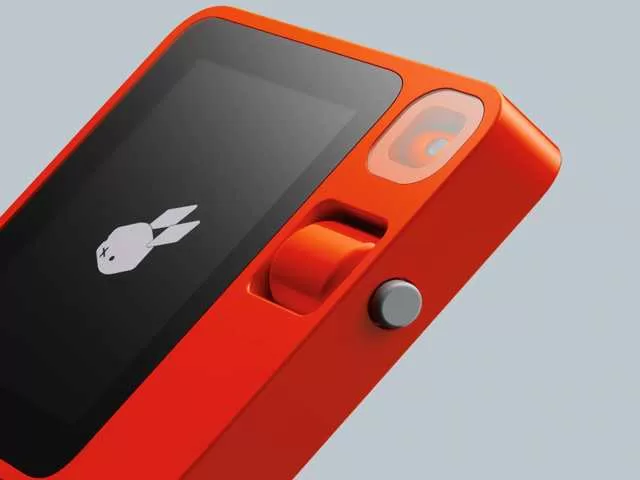Rabbit Unveils AI-Powered R1 Assistant at CES 2024
Santa Monica-based startup Rabbit has introduced its latest innovation, the Rabbit R1 AI assistant, at the Consumer Electronics Show (CES 2024) in Las Vegas. The R1, equipped with a 2.88-inch touchscreen display and powered by a MediaTek processor, offers a seamless and intuitive user experience. rabbit Founder and CEO Jesse Lyu explained the motivation behind the R1, stating, “We’re moving towards an intuitive app-free experience with the power of AI.”
The Rabbit R1 distinguishes itself by utilizing a ‘Large Action Model’ rather than the conventional Large Language Models (LLM) like OpenAI’s GPT or Google’s Gemini. This unique approach enables the R1 to understand user intentions and behaviors within specific apps, replicating actions reliably and swiftly.
To pre-order the Rabbit R1, priced at $199, visit the official website at rabbit.tech. The initial two batches of 10,000 devices have already sold out, with the third batch available for pre-order, expected to be delivered between May and June 2024.
Revolutionizing Smartphones: Rabbit R1 vs. Humane AI Pin
In the ever-evolving world of smartphones, Rabbit R1 and Humane AI Pin emerge as pioneers, challenging the status quo set by devices that have become time-consuming entertainment hubs rather than efficient tools. These innovative tech startups aim to redefine our interaction with smartphones, focusing on simplicity and practicality. Let’s delve into the distinctions between Rabbit R1 and Humane AI Pin to understand their unique approaches.
Shared Traits:
Both Rabbit R1 and Humane AI Pin boast app-less operating systems – Rabbit OS for the R1 and Cosmos for the Humane AI Pin. Their common goal is to streamline user queries, eliminating the need for app downloads and management.
Distinguishing Features:
While the two devices share similarities, key differences set them apart. The Humane AI Pin functions as a wearable LLM-powered search engine, offering ChatGPT-like conversational interactions. Notable features include a “catch me up” option for summarizing emails and texts, a built-in camera for food scanning, and real-time translation.
Rabbit R1 takes a direct approach by mimicking smartphone actions without relying on app-specific APIs. This open-ended strategy allows users to train the AI for various tasks without formal app partnerships, offering boundless potential.
Approach to the ‘Apps Problem’:
Humane AI plans to collaborate with app developers, enabling them to build tools for integration. In contrast, Rabbit R1’s approach is more open-ended, providing flexibility in task execution without the need for direct partnerships with specific apps.
Hardware Distinctions:
In the hardware department, Humane AI Pin stands out with a 13MP camera, a built-in projector, touchpad, and Trust Light indicator. The Rabbit R1, a pocket-sized device, prioritizes simplicity with a natural language operating system.
Philosophy and Mission:
Jesse Lyu, Rabbit’s founder, envisions creating the simplest computer with an intuitive interface, aiming to eliminate the need for extensive learning. The Rabbit R1’s mission revolves around freeing users from the entanglements of time-consuming entertainment-centric smartphones.
In a world saturated with rectangular slabs, Rabbit R1 and Humane AI Pin emerge as innovative contenders, challenging conventional smartphone paradigms. Whether through open-ended flexibility or collaborative app development, these devices promise a fresh approach to managing our digital lives.

